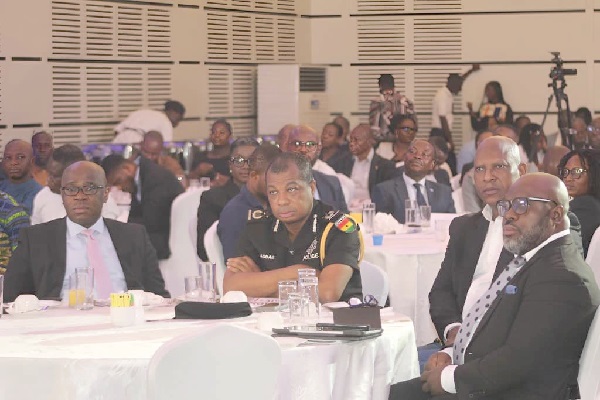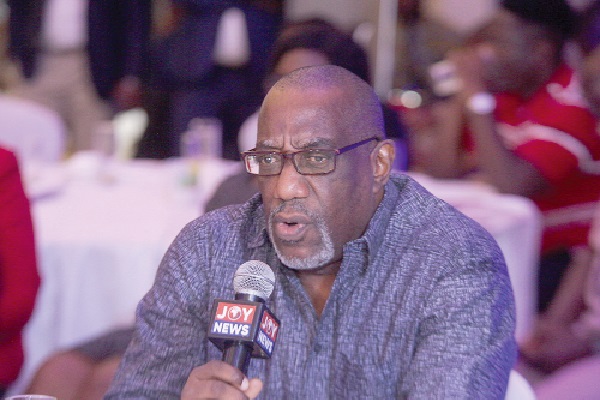
Public-Private Partnerships and financing options for sustainable development: Participants share thoughts on way forward
The first quarter thought-leadership event, Graphic Business/Stanbic Bank Breakfast Meeting, came off last Tuesday at the plush Labadi Beach Hotel in Accra.
On the theme; "Public-Private Partnerships and Financing Options for Sustainable Development," it was held at a time when the government had expressed its determination to work with the private sector to close the wide infrastructure gap in the country.
The meeting which was attended by private sector players, investors among others, had Country Senior Partner at PwC Ghana, Vish Ashiagbor, as the lead speaker.
Delivering his paper on the theme, he said while Public-Private Partnerships (PPPs) offer significant opportunities for development, they require careful planning and execution to succeed.
He said the complex nature of these partnerships demands thorough preparation and a clear understanding of the long-term commitments involved.

Mr Ashiagbor said a key consideration in PPP development was the need to avoid adding unnecessary layers of complexity to already complicated structures.
He said the sustainability of PPP projects hinged on their ability to address long-term public needs rather than temporary demands.
This, he said, required careful analysis and planning to ensure that investments deliver lasting value to communities and stakeholders.

Decentralise PPPs
The former Head of Public Private Partnerships (PPP) at the Ministry of Roads and Highways, Engineer Philip Lartey, on his part emphasised the need to decentralise PPPs to accelerate Ghana's development.
To realise this, he suggested to the Ministry of Finance to build the capacity of Metropolitan, Municipal and District Assemblies (MMDAs) to gain a better understanding and appreciation of what PPPs are and how to implement them at the metropolitan, municipal and district assembly levels to make PPPs a decentralised initiative of the state.
Mr Lartey, who is now the Chief Executive Officer (CEO) of consulting and investment firm, Don Wudi Investment, noted that the idea of PPPs, which could finance sustainable government projects and the private sector partnering government for development, was a sine qua non for national development.
He said allowing MMDAs to take ownership of development projects and partner the private sector directly would cut through bureaucratic red tape and foster quicker project delivery.
Tax on projects
The 21 per cent taxes levied on total project cost undertaken by private sector players in the country is reducing their appetite for partnering governments to undertake major infrastructure projects, particularly under a Public Private Partnership (PPP) arrangement.
Consequently, players in the industry are calling for a major review of the present tax regime if the call for PPPs to change the narrative is to materialise.
The Chief Executive Officer (CEO) of ERIS Property Group, Enoch Entsua-Mensah, emphasised that the tax burden made many projects unviable, especially in the property development sector.
He referenced, for instance, the 21 per cent tax on total project costs and noted that the present situation was a major disincentive to private investors who were willing to undertake major infrastructure projects in key sectors of the economy, including the provision of student hostels to reduce the cost of accommodation facilities at the tertiary level.
Win-win
During the discussions, the challenge of how PPP agreements are designed in favour of the state without considering the value to the private sector players arose strongly.
It was against this background that Mr Entsua-Mensah urged the government to create a more favourable environment for PPPs by rethinking, in particular the current tax regime, by eliminating or reducing taxes to make such projects attractive, affordable and ultimately beneficial to both investors and the government.